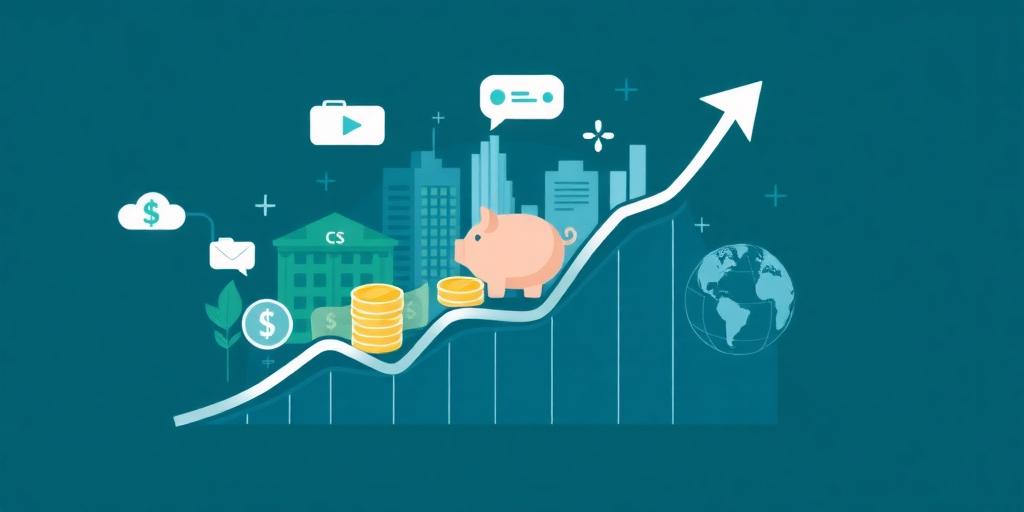Grow Your Wealth: Connecting Personal Finance to Business & Economy
Understanding the intricate relationship between personal finance, business, and the economy is crucial for effective wealth accumulation and financial stability. This post explores how these three elements are interconnected and how leveraging this knowledge can empower you to make informed financial decisions.
Understanding Personal Finance
Personal finance encompasses all financial decisions an individual or household makes, including budgeting, saving, investing, and managing debt. Effective personal finance management is the foundation for building wealth and achieving financial goals.
- Budgeting: Creating a detailed plan for income and expenses to track cash flow.
- Saving: Setting aside a portion of income for future use, such as emergencies or investments.
- Investing: Allocating capital to assets like stocks, bonds, or real estate with the expectation of generating income or profit.
- Debt Management: Strategically handling debt to minimize interest payments and avoid financial distress.
The Role of Business in Wealth Creation
Business activities significantly contribute to wealth creation at both individual and macroeconomic levels. Entrepreneurship, employment, and business investments are key drivers of personal and national prosperity.
- Entrepreneurship: Starting and managing a business can generate substantial income and wealth. Successful entrepreneurs often accumulate significant assets through their ventures.
- Employment: A stable job provides a regular income, enabling individuals to save, invest, and build wealth over time. Compensation, benefits, and opportunities for advancement all play a role.
- Business Investments: Investing in businesses, whether through stocks, bonds, or private equity, can provide returns that contribute to personal wealth.
The Economy's Impact on Financial Well-being
The overall state of the economy significantly influences personal finance and business opportunities. Economic indicators such as GDP growth, inflation, interest rates, and unemployment rates can impact financial decisions and wealth accumulation.
- GDP Growth: A growing economy typically leads to more job opportunities and higher incomes, improving personal financial situations.
- Inflation: Rising inflation erodes the purchasing power of money, affecting budgeting and investment strategies. Central banks often adjust interest rates to manage inflation.
- Interest Rates: Interest rates influence the cost of borrowing and the returns on savings and investments. Lower interest rates can stimulate borrowing and investment, while higher rates can curb inflation.
- Unemployment Rates: High unemployment can lead to financial insecurity and reduced consumer spending, affecting both personal finances and business revenues.
Connecting the Dots
To effectively grow your wealth, it's essential to understand how personal finance, business, and the economy are interconnected. For instance:
- Investment Decisions: Economic forecasts can inform investment strategies. Understanding market trends and economic indicators can help you make more informed decisions about where to allocate your capital.
- Career Planning: Economic conditions can influence job availability and career opportunities. Identifying industries with growth potential can guide career choices and enhance earning potential.
- Business Strategies: Economic trends can impact business planning and strategies. Adapting to changing consumer behavior and market conditions can improve business performance and profitability.
Strategies for Wealth Accumulation
- Financial Education: Continuously educate yourself about personal finance, business, and economics to make informed decisions.
- Diversification: Diversify your investments across different asset classes to mitigate risk and maximize returns.
- Long-Term Perspective: Adopt a long-term perspective on wealth accumulation, focusing on consistent saving and investing over time.
- Adaptability: Stay adaptable to changing economic conditions and adjust your financial strategies accordingly.
Conclusion
Growing your wealth requires a holistic understanding of personal finance, business, and the economy. By connecting these elements and making informed decisions, you can navigate financial challenges and capitalize on opportunities to achieve long-term financial success.









